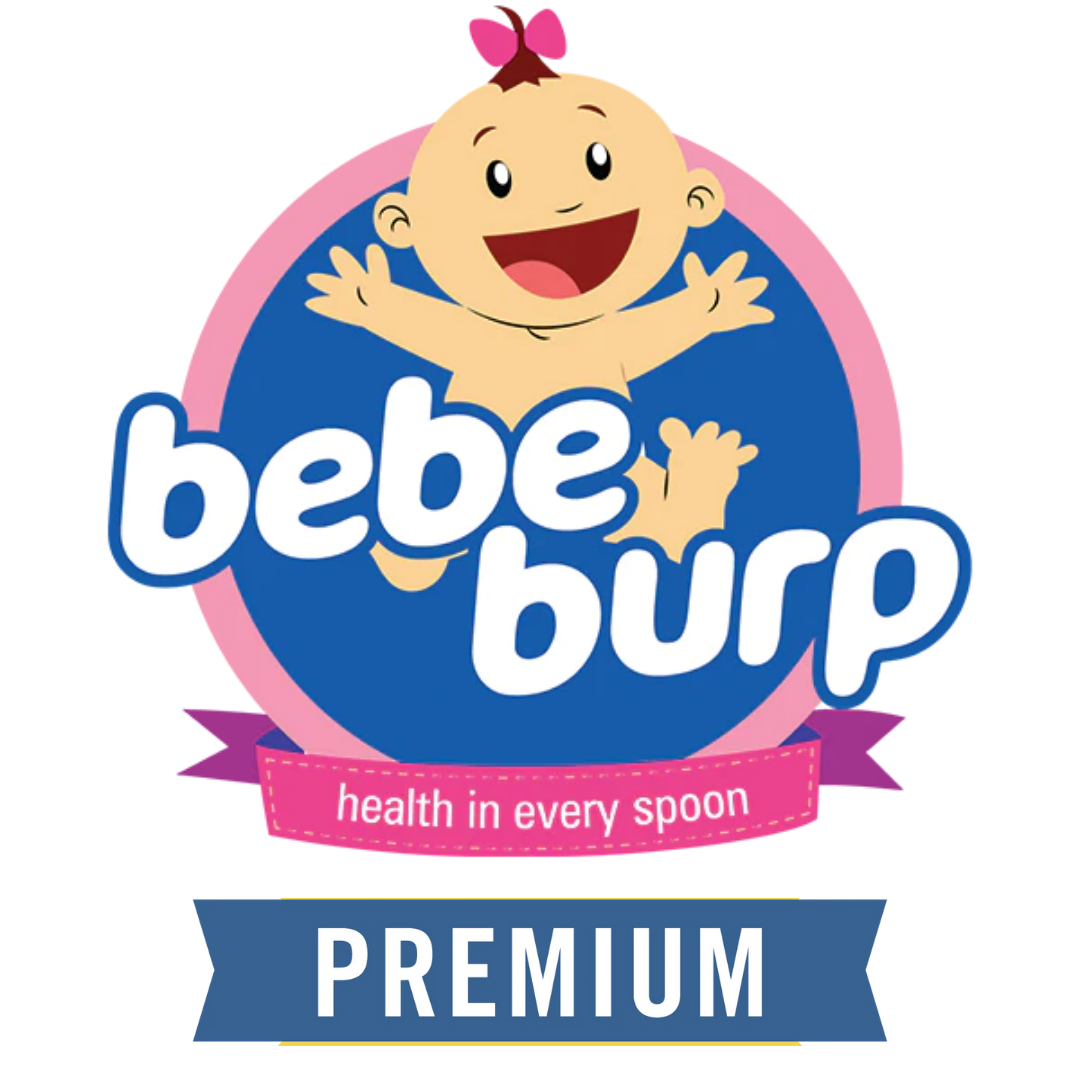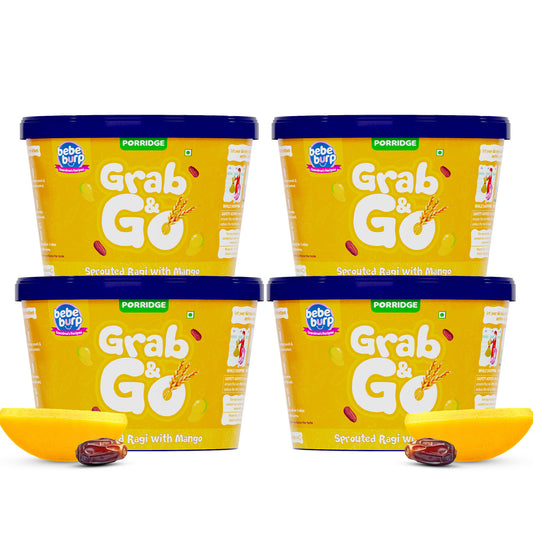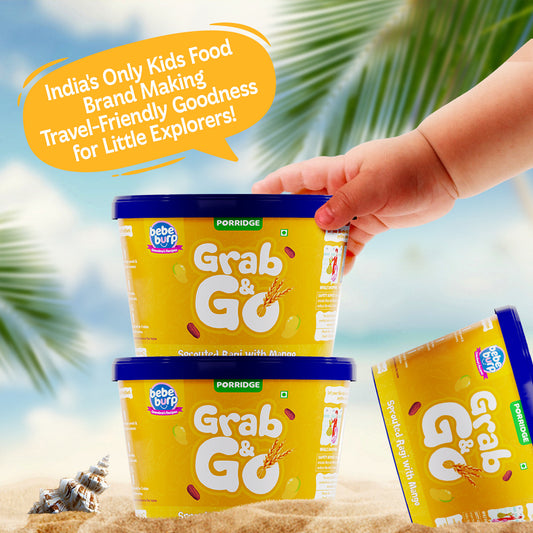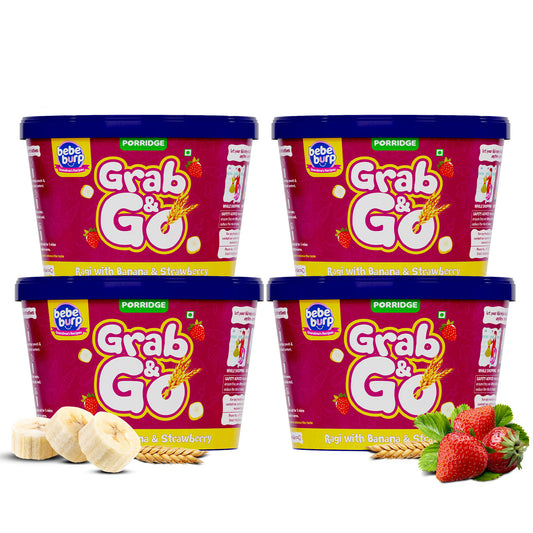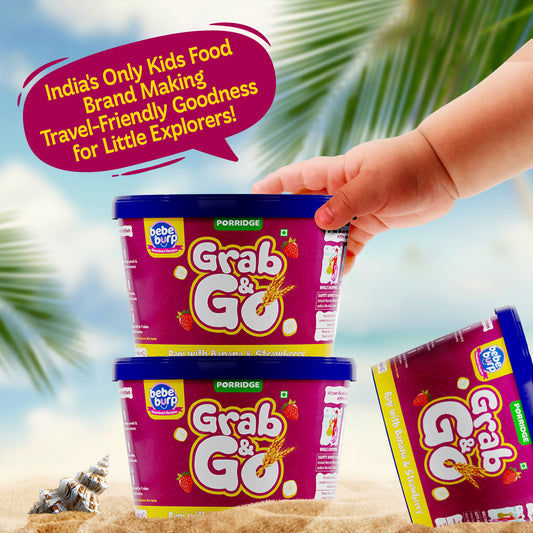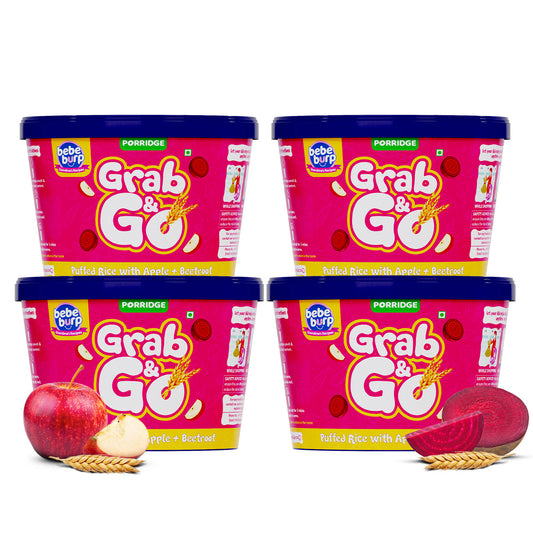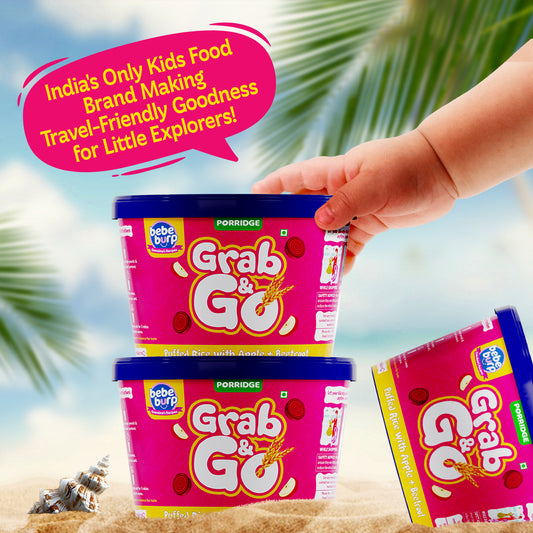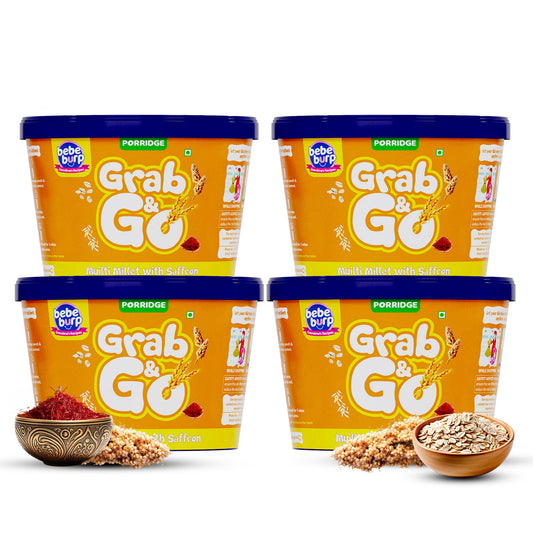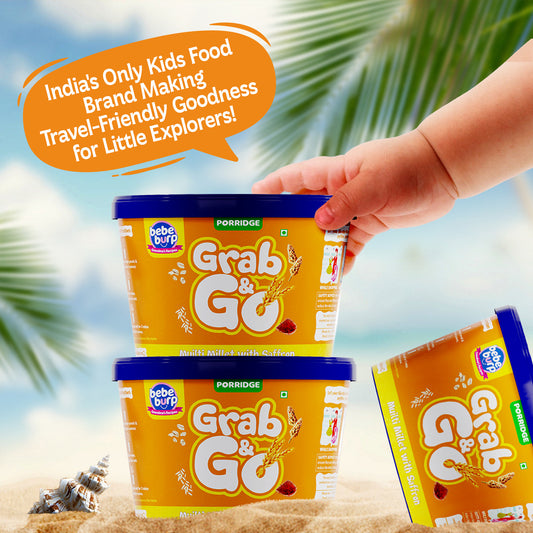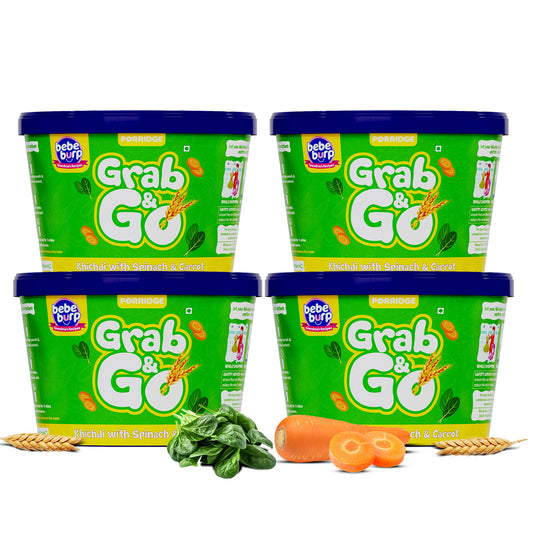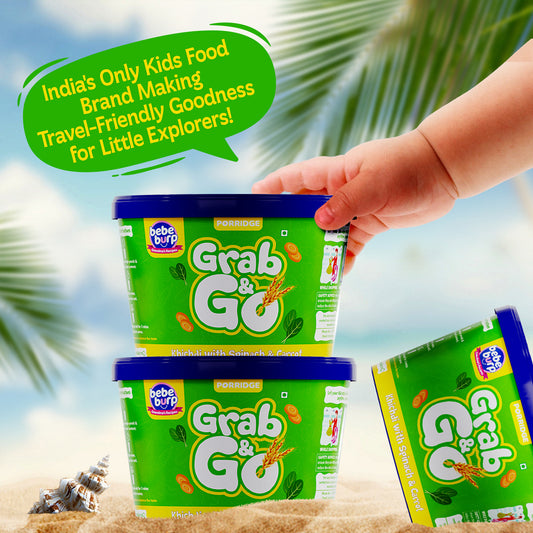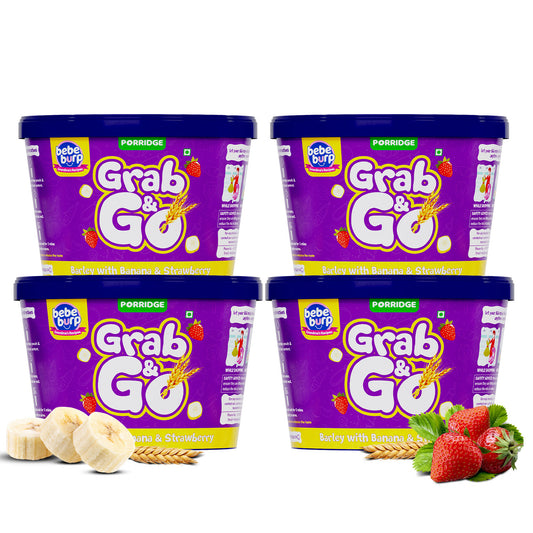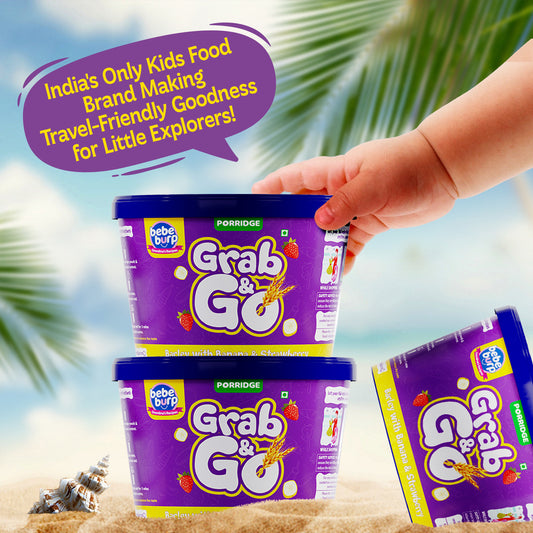When planning Baby Food During Travel, it is essential to prepare healthy foods that can be consumed conveniently.
For travel, consider easy-to-prepare, shelf-stable snacks like fruits, vegetables, and dairy. Alternatively, try instant baby food pouches and instant cereals for quick meals on the go.
Bebe Burp Travel Packs provide you with travel-friendly, nutritious meals in a single-serve pouch.
Meals like Khichdi and Multi Millet are easy to prepare—just add water—and will surely support your baby’s nutritional needs while traveling.
Adjust baby travel items like spoons, clothes, and bibs as well, so you’re ready for any spills.
Why Proper Nutrition Matters When Traveling with Babies
Babies have Sensitive eating needs. A change in their nutrition might cause stomach problems, irritation, or even developmental delays. Appropriate eating on travel supports:
- Health of the immune system: Particularly in busy airports or strange settings.
- Constant development: Particularly for young children under twelve months old.
- Energy levels: To match packed travel schedules.
Give familiar tastes and nutritious foods top priority to help with time zone and routine change.
Top Travel-Friendly Baby Food Options for Different Ages
Traveling with a baby requires special attention to nutrition. Below is a detailed guide to travel-friendly baby food options for different ages:
Infant (0-6 Months) Travel Food Solutions
Breastmilk or formula is safest for newborns. Pack:
- Ready-to-feed bottles of formula.
- Insulated bottles to keep milk cold.
- Travel-sized sterilizers for hygiene on the road.
Give pump-friendly equipment top priority for breastfed infants and look at nursing-friendly airport policies.
Baby Food Options for 6-12 Months
Introduce purees and soft finger foods:
- Store-bought single-ingredient pouches (organic brands like Bebe Burp).
- Homemade purees in reusable silicone pouches (sweet potatoes, peas, or lentils).
- Oatmeal packets with added formula or breastmilk.
Avoid sugary snacks and prioritize iron-rich foods like enriched cereals.
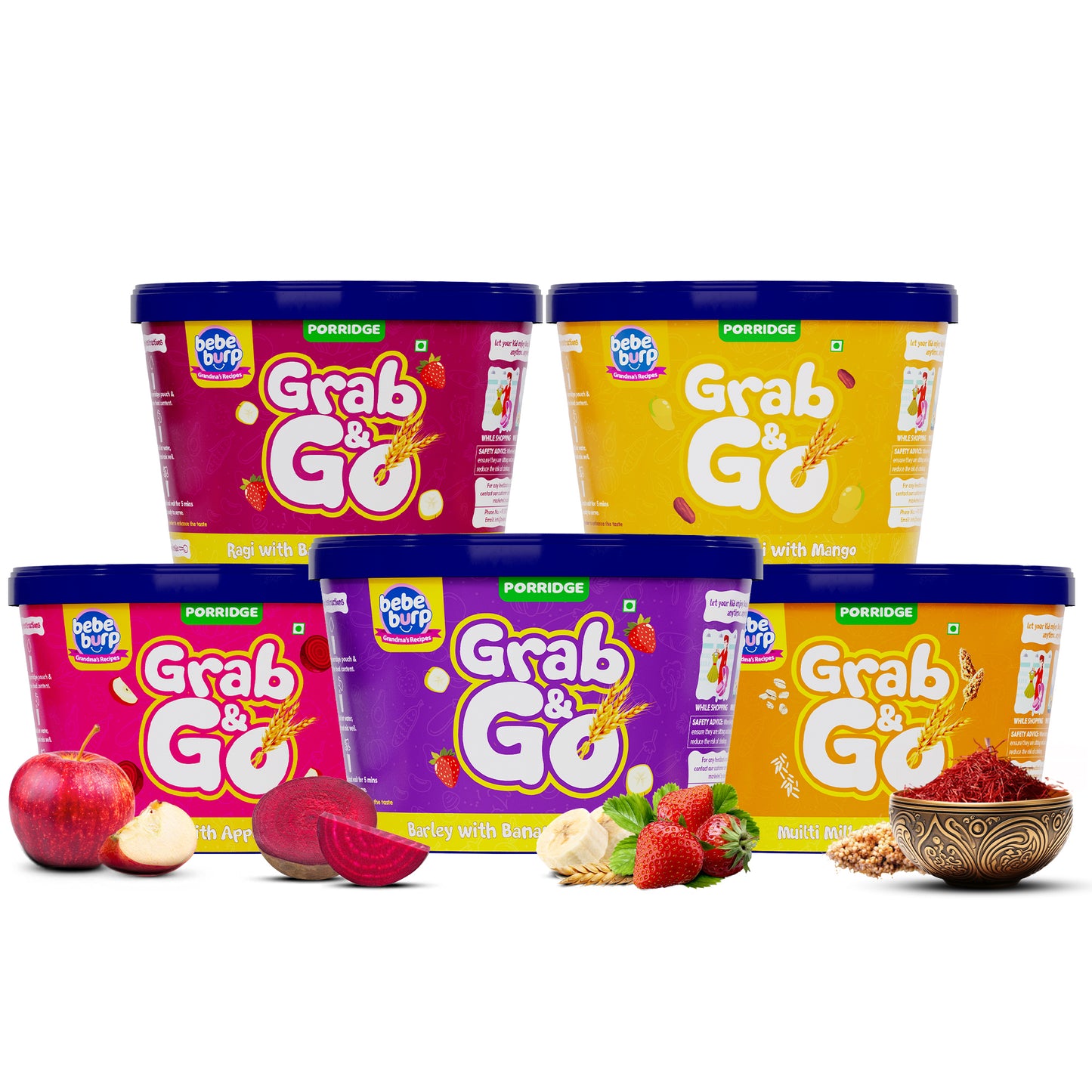
Travel Pack Grab & Go – Pack of 5 (30g each)
A blend of pearl barley, spices, and freeze-dried fruits like banana and strawberry. Just add hot water for a nutritious meal on the go.
Rs. 485
Buy NowToddler (12-24 Months) Nutritious Travel Snacks
Toddlers explore independently—offer easy-to-eat options:
- Dried fruits (no added sugars).
- Cheese sticks or yogurt pouches.
- Whole-grain crackers with nut butter (if allergy-safe).
- Pre-cut veggies with hummus for dipping.
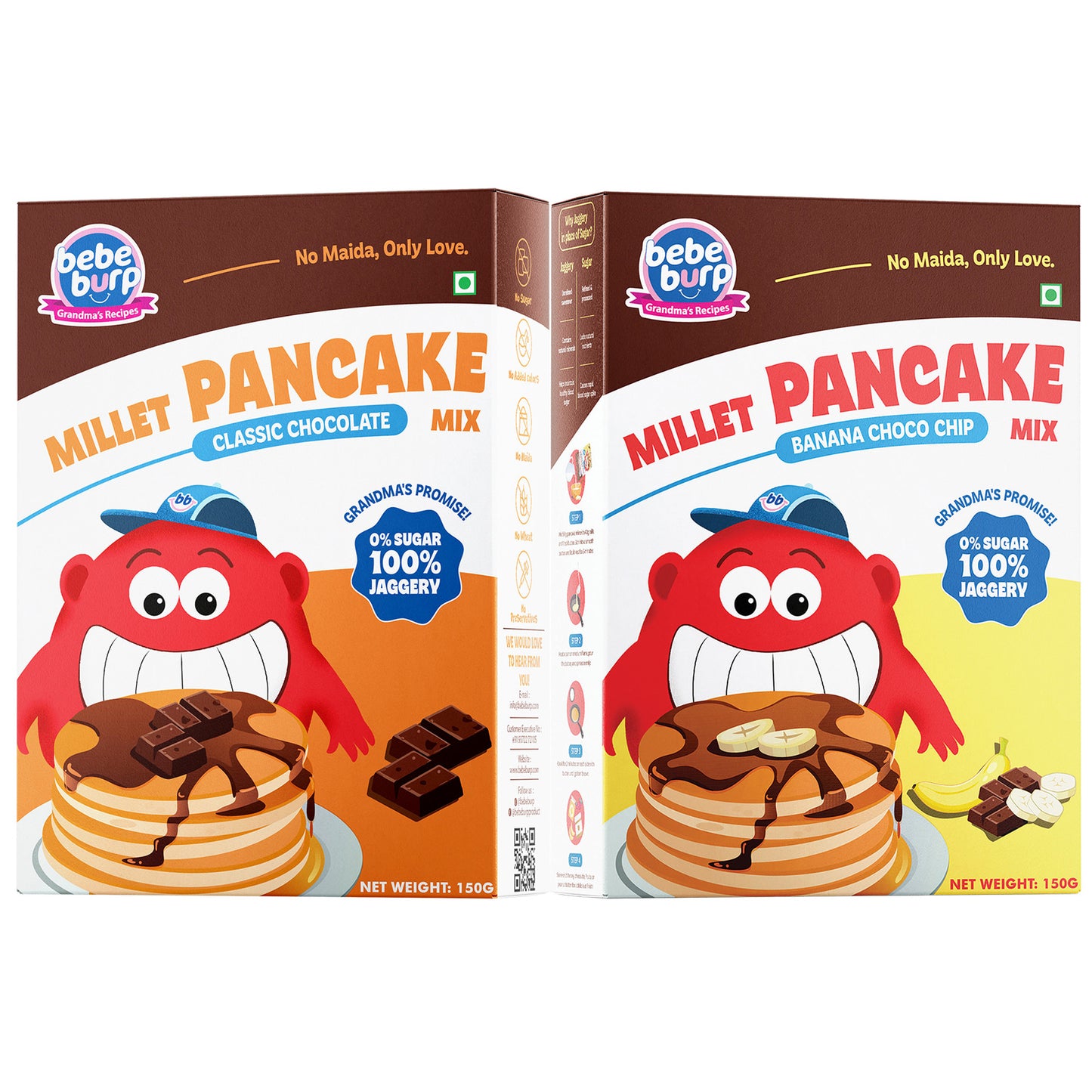
Pancake Mix Combo – Pack of 2 (150g each)
A delightful duo of millet-based pancake mixes: Classic Chocolate and Banana Choco Chip. Naturally sweetened and preservative-free.
Rs. 260
Buy NowEssential Packing and Storage Tips for Baby Food
Stocking baby food for travel calls for organizations to guarantee freshness and prevent spills. These ideas should assist you:
- Stow infant food in little, leak-proof containers to stop mishaps.
- Particularly for easily spoilable foods like Yogurt or breast milk, store food at the proper temperature using an insulated bag.
- Always pack extra baby food, formula, or snacks in case of delays or crises.
- Use Ziploc bags for dry snacks like crackers; they are simple to carry and work great.
Nutritional Considerations for Traveling Babies
Maintaining the correct diet is essential while traveling with children:
- Keep your infant well-hydrated: using formula, breast milk, or water. Older babies could need diluted juice or more water.
- Frequent meals and snacks will help maintain energy levels. Pack healthful grains, fruits, and purees—easily consumed foods.
- Stay with familiar foods: avoid introducing new foods while on travel to prevent allergies or stomach problems.
- Travel-friendly foods: include small containers of homemade purees, snacks, and baby food pouches—easy-to-pack and present items.
- Local Diet Advice: When overseas, be careful with regional cuisine. For your infant, keep to known, safe choices.
These ideas will help you make sure your infant remains comfy and fed while on travel.
Practical Feeding Strategies While Traveling
Maintaining reasonable feeding schedules is crucial when flying with children. These are some practical tactics:
- Bring travel-friendly bottles, baby food pouches, and easily carried and served snacks along with portable feed gear.
- Maintaining feeding times as near to your baby's routine will help you to prevent pain brought on by hunger.
- Invest in a portable high chair or booster seat for simple break feeding on the go.
- Always carry extra food and formula on hand, particularly on long flights, in case of delays or emergencies.
- Take advantage of travel breaks—in the automobile or at rest stops—to feed your baby, therefore maintaining their quiet and contentment.
These techniques will help to guarantee that your infant remains happy and well-fed during the trip.
Must-Have Baby Food Travel Accessories
Storage Units
-
Portable food storage container: A category that includes small, seamless, and leak-proof containers in addition to baby food pouches and jars. Larger quantities of baby food or formula can be stored in freezer bags.
-
Insulated cooling bags and ice packs: Used to keep food and fluids such as baby food, breast milk, or formula chilled.
Feeding Tools
- Baby-friendly forks and spoons: Gentler counterparts to conventional spoons and forks, designed to be grip-friendly without slipping and soft on the hands of the little one. As well as age and level of mastery over self-feeding the child considers.
- Bibs: Long sleeves that catch most dribbles coming from little mouths plus wipes touted to remove stubborn stains from soft material that looked like food was their fighter. Silicone placemats also aid in capturing errant food.
- Snack Cube containers: Useful for storing food such as fruits or cereal on the go.
Equipment Used for Preparing Food
- A Portable Baby Food Blender: Effortlessly purees meats, fruits, and vegetables. Consider compact and rechargeable models.
- Food Pouches: Useful for Storing Yogurt or for holding homemade baby food.
Food Storage and Warming Equipment
- Insulated Thermoses: Hold warm baby food and milk.
- Food jars: They can be heated using car chargers or batteries, resulting in on-the-go convenience.
Other Useful Accessories
- Travel high chair: A Foldable and portable high chair to provide a comfortable eating environment for the baby to encourage self-feeding.
- Stroller snack tray: Store snacks and utensils to enhance convenience. Please be careful when using it.
- Baby wipes and hand sanitizer: Maintain cleanliness during the feeding period.
- Small cooler: Keeps food such as sandwiches fresh.
Food Safety and Other Considerations
- Refrigeration access: Prior access to a refrigerator to store leftover baby food is necessary.
- Import rules: Check the rules regarding food brought into the region.
Conclusion
Taking a baby with you does not mean sacrificing nourishment! Your little one will be delighted and healthy on the go if you schedule age-specific meals, prepare wisely, and give hydration a top priority.
Use this guide to streamline cooking and welcome worry-free family vacations.
